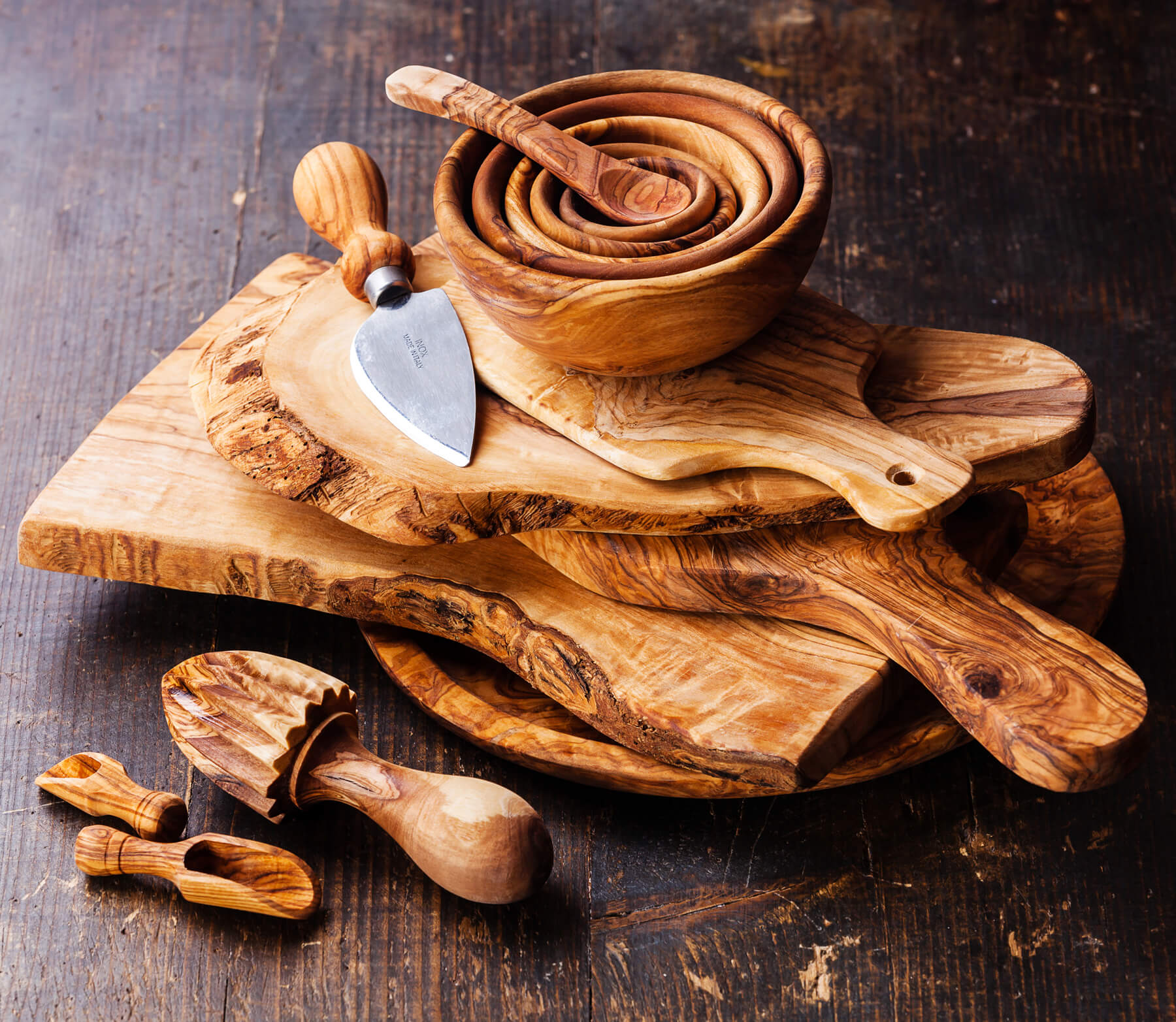Olive wood
How to take care of olivewood
.jpg)
Caring for your olivewood item is of great importance to ensure that you have many years of use and enjoyment of your products. With a few simple tricks your olivewood will always look its best. To clean or wash your olivewood products do so only by hand and with warm water and soap. Never submerge in water and do not put items in the dishwasher. After drying naturally, the wood may look dull – and a little like it is losing its grain – but this can be corrected with simple olive oil.
Olive oil rubbed gently over the wood will bring the grain and the wood back to life. The olivewood should be oiled frequently, ideally after every wash, to keep it properly nourished.
When finishing our olivewood kitchen items, we treat them with a homemade natural beeswax/olive oil solution. This is 100% chemical free and food safe. The olive oil nourishes the wood while the beeswax creates a seal to protect and revitalize the surface. (You should be aware that many beeswax solutions for wood contain turpentine, which is not a food-friendly substance, but we ensure that ours is turpentine-free.
Why olive wood?

Olive trees have been growing in Tunisia for thousands of years. Older and nonproductive trees are used to produce olive wood. olive trees forge the identity of Tunisian who built up a strong bound and relationship with the tree. Each tree embodies a wonderful grain structure that gives each wood piece a unique personality and character.
About our olive wood product
- Olivewood is a hard and non-porous wood that is ideal for products such as chopping boards and kitchen items. It will not absorb flavours, odours or bacteria and it does not stain.
- Few woods are able to offer such a vivid grain with such unique character.
- The darkness of the grain of the wood denotes the wood’s age. The darker the grain, the older the wood.
- The pattern and complexity of the olivewood grain denotes from where on the tree the particular item comes from.
- Large pieces of olivewood are rarely found due to the gnarly way the trees grow and because they split and twist with age.
- Olive trees in Tunisia are considered sacred and very rarely felled.
- The thickness of the tree trunk denotes the age of the tree. Olive trees can live for up to 5000 years and grow up to six meters in circumference.
- Every olive tree you see in Tunisia is owned by someone, providing the owner with olive oil and an income.
- The olive branch often held by a dove is a symbol of peace.
- All of our olivewood is crafted locally in our workshop.
- Our wood is seasoned for 3 to 5 years so as to dry it completely.
- Each piece of wood is carefully selected and hand-picked to create the exact end product.
- All kitchen and food related products are food safe. They are treated with our own special blend of olive oil and natural bee’s wax.
- The best way to care for your olivewood is simply with olive oil.
- Do not put olivewood products in the dishwasher. Wash them by hand and let them dry naturally.
- Wipe over your olivewood with olive oil. This will nourish the wood, bringing out the beauty of the grain, while adding luster to your olivewood.
- We are not only a retailer. But also, we wholesale our products throughout Tunisia. “order wholesale”

.jpg)
